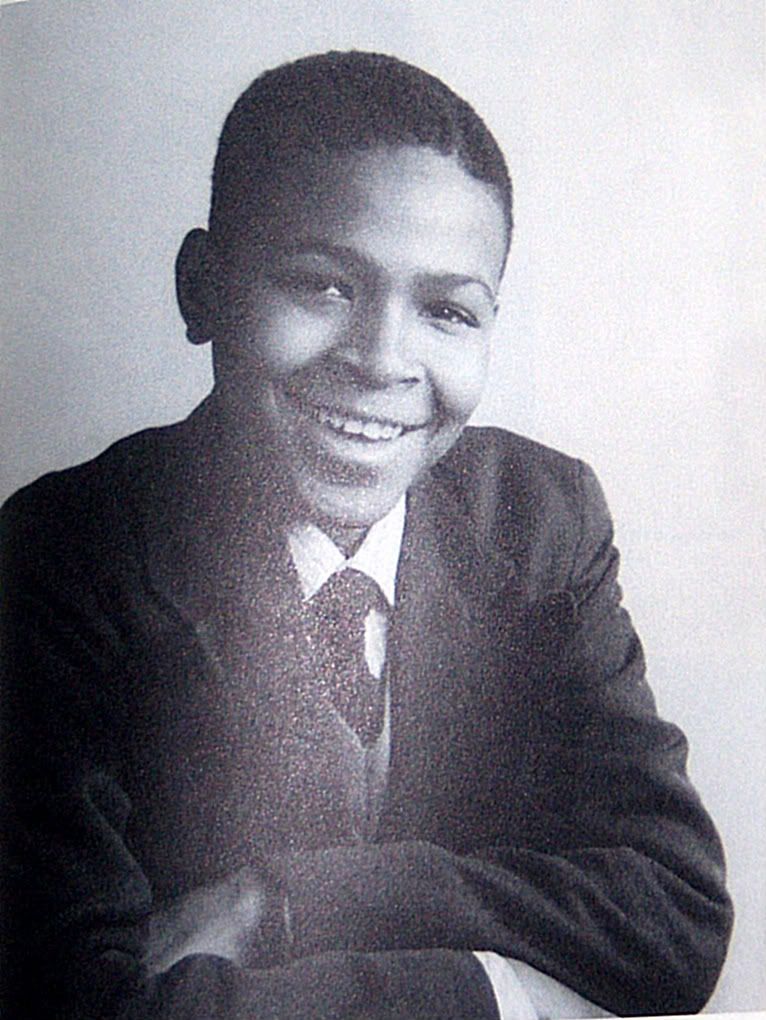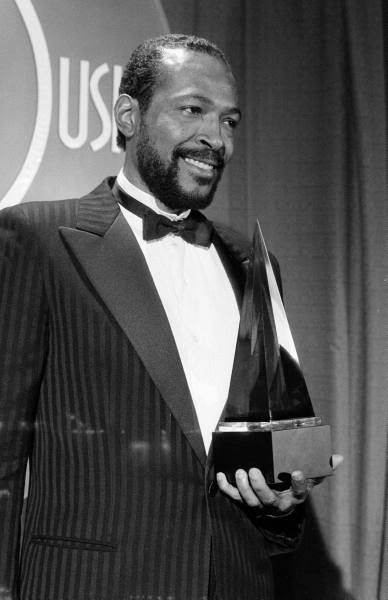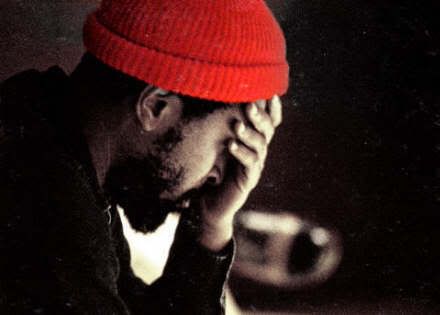What a wonderful interview, candid.
Kudos to Scott Regan too who is not antzy and intrusive like so many who conduct these interviews. Bravo!
Comment
-
Comment by Edie Antoinette on December 14, 2009 at 3:35am
-
--text ripped from the booklet of the CD "The Very Best Of Marvin Gaye". --
Marvin Gaye's extraordinary career matched his extraordinary life, a mixture of blessings and banes, dazzling success and inscrutable pain. His biography and discography are twin reflections of the same dualty: the artistic and personal struggle to heal the split between head and heart, flesh and spirit, ego and God. Meanwhile, the music lives on for the pleasures of its beauty and the marvel that was Marvin's voice.
Marvin's work divides along decades - the sixties when he hit as a commercial if somewhat rebellious artist, a brilliant product of the Motown assembly line; the seventies when he matured as an independent force, a self-produced self-reflective auteur who both rose to the challenge and fell to the temptations of his times; and the early eighties when, for a brief moment, he came roaring back on the scene for the final, tragic act of his spectacular drama.
The seeds of his discontent were sown in childhood. Born April 2, 1939, in Washington, D.C., Marvin Pentz Gaye, Jr. was the oldest son of a charismatic storefront preacher. The church was joyful, the holy roller music intoxicating; but the church was severe, and its no-drinking, no-dancing, no-nonsense regulations strict. The church was also eccentric - a small Christian subculture which celebrated the Jewish High Holy Days.
The church set Marvin, his brother and two sisters apart from ther peers. Marvin's mother worked as a domestic and carried the burden of the family's finances. The Reverend Gay - Marvin added the "e" later - worked as a part-time postal clerk and often not at all. A scholary but violent man, he beat his children for minor infractions and friolous misbehaviour. Marvin rebelled - Marvin would always rebel - and paid the price in corporal punishment.
He quit high school before graduation and joined the Air Force, only to be discharged. "My discharge was honorable", Marvin told me, "although it plainly stated, 'Marvin Gay cannot adjust to regimentation and authourity.'" After working with seminal rocker Bo Diddley, he joined the Moonglows, a quintessential five-part harmony group. It was the end of the fifties, and Marvin's impressions of the dawning Golden Age of Doo-Wop - with its lush romanticism, its otherworldliness, its idealization of women and pure melodic beauty - would prove powerful and permanent.
Harvey Fuqua had founded and led the Moonglows. A superlative writer and musician, he became Marvin's guru father-figure. When the group broke up, it was Fuqua who led Gaye to Detroit and Berry Gordy's just-born Motown Records. Marvin wanted in - into the studio and into the Gordy family. Gaye got what he wanted, marrying Berry's sister Anna, a woman 17 years his senior, and recording an initial series of records which ran contrary to Gordy's notion of selling black dance music to white teenagers.
Marvin dreamed of becoming a crooner in the silky-smooth style of Nat Cole, of besting Frank Sinatra and Perry Como. Shy but ambitious, mellow but fearful, broodingly serious, the singer wanted to sit on a stool, smoke a cigarette, nurse a martini and interpret the ballads of Gershwin and Porter. Gordy indulged Marvin's fantasy, even producing a number of his early efforts. But Marvin and Motown failed to crack the adult market. Gaye's destiny was Top Ten.
Seeing his colleagues - Mary Wells, the Marvelettes, the Miracles - score so resoundingly, Gaye jumped into the game with "Stubborn Kind of Fellow", a self-penned piece of autobiography that established his ability to rock in the rhythms of Young America. The song hit in 1962, as did a long series of others - "Pride and Joy", "Can I Get A Witness?", "I'll Be Doggone", "Ain't that Peculiar". As a writer, Marvin contributed to "Dancing In The Street", the covertly revolutionary anthem by Martha Reeves and the Vandellas.
Not only did Gaye score as a solo a
-
Comment by Shelley "SoleMann" King on December 10, 2009 at 10:02am
-
Marvin is cool as cool can be....LOL. I have to agree with Gloria on WHAT'S GOING ON
-
Comment by Gloria on December 10, 2009 at 2:43am
-
He is so relaxed here,this is like listening to two old friends catch up on what's going on. Now Marvin in aviation...pilot, air traffic controller, air craft designer...and singing "Let's Get It On"!!!
-
Comment by Edie Antoinette on December 9, 2009 at 11:45pm
-
I think I'm going to do a full Marvin page like The Funk Brothers have one here.
Enjoy the interview! ~E
-
Comment by Edie Antoinette on December 9, 2009 at 11:44pm
-



© 2025 Created by Edie Antoinette.
Powered by
![]()


You need to be a member of I Grew Up In Chicago to add comments!
Join I Grew Up In Chicago